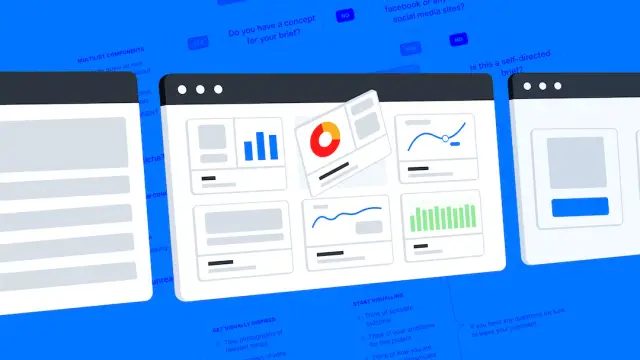Do I Need to Learn a Programming Language to Learn SEO?
Discover if learning to code is necessary for SEO success. This article breaks down the relationship between programming skills and SEO efficiency.

Why SEO Doesn't Demand Coding
Understanding Search Engine Optimization (SEO) does not inherently require one to be a programming wizard. Contrary to what some may believe, the core competencies of SEO revolve around optimizing content, building quality backlinks, and creating a user-friendly website experience, none of which necessitate coding proficiency.
At the heart of SEO lies improving a website's visibility and ranking on search engines. This involves meticulously researching and incorporating relevant keywords, crafting engaging and valuable content, and ensuring that a website meets the technical standards preferred by search engines. While this sometimes involves tweaks to a website’s structure or code, many SEO professionals work closely with web developers to implement such changes or rely on user-friendly content management systems that minimize the need for direct coding.
Moreover, the tools and analytics platforms SEO experts regularly employ, such as Google Analytics, Google Search Console, and the numerous other specialized software solutions, provide user interfaces that abstract the underlying code, delivering insightful data without requiring the user to input or manipulate code directly.
SEO has grown increasingly user-centric, focusing on creating a seamless and engaging user experience. Understanding the user's search intent and providing high-quality, relevant content are far more critical to SEO success than the ability to tweak backend code. User engagement metrics, such as click-through rates, time spent on page, and bounce rates, are pivotal indicators that search algorithms consider when ranking pages, suggesting that content and experience reign supreme in search optimization.
Yet, it's important to note that having a fundamental understanding of how web technologies work can enhance an SEO specialist's toolkit. Knowing the basics of HTML, for instance, can help optimize webpage titles, headings, and meta tags without depending on a developer. But, again, this knowledge is not a prerequisite to entering the field of SEO or excelling within it.
Certainly, there will always be aspects of SEO that are enhanced by programming knowledge, such as automating repetitive tasks or customizing certain website features for better performance. Yet, the beauty of modern technology is that there are always alternatives and supportive tools available. No-code platforms like AppMaster, for example, further bridge the gap by offering solutions that simplify the creation and management of web applications with built-in SEO-friendly features, allowing those without coding skills to remain competitive in their SEO efforts.
While coding can add a dimension of technical strength to an SEO professional’s portfolio, it is by no means a barrier to entry nor a linchpin for success in the field. SEO is, at its core, a discipline that focuses on content, user experience, and strategic implementation – all of which can be mastered without deep diving into programming languages.
Areas of SEO That May Involve Coding
While it's true that you don't need to be a programmer to be good at SEO, there are areas within the field where having some familiarity with code can give you an edge. Beyond basic HTML which is often essential for on-page SEO, other languages like CSS and JavaScript come into play under specific circumstances. Here are several areas where coding knowledge may influence your SEO work:
Website Auditing
Understanding the code behind a website can help diagnose problems that affect SEO, such as slow load times due to inefficient code or large files. Using tools can help, but manually inspecting the code can pinpoint issues more directly.

On-Page SEO
Tweaking the HTML to optimize tag structures, improve meta descriptions, and ensure proper heading use can all benefit from some HTML knowledge. Additionally, working with structured data and schema markup often requires directly editing code snippets.
JavaScript-Heavy Websites
Search engines like Google have improved in understanding JavaScript, but SEO for websites that rely heavily on JavaScript can still be tricky. Knowledge in this area can help ensure content is crawlable and indexable.
Mobile Optimization
With mobile becoming increasingly important, understanding how to code responsive designs or debug issues on different devices can be crucial for maintaining mobile-friendliness, which is a ranking factor.
Site Speed Optimization
Optimizing for speed might involve delving into the site's code to minify CSS, JavaScript, or HTML files, and eliminating render-blocking resources, which are tasks where developers may take the lead.
Technical SEO
Creating redirects, fixing broken links, and implementing security measures like HTTPS can require coding knowledge, particularly on more complex sites or those with customized content management systems.
In these areas, possessing coding skills can enhance an SEO’s capability to execute comprehensive optimizations, making them a valuable ally to developers and a more effective strategist. Yet, with the emergence of sophisticated SEO tools and no-code platforms, the barrier to entry for successful SEO is lower than ever, making it accessible to those without a coding background.
The No-Code Movement and SEO
The rise of the no-code movement represents a fundamental shift in how individuals and businesses can create and manage digital assets, including SEO-friendly websites. This movement empowers those without formal programming training to build complex websites and applications through intuitive interfaces and pre-built modules. This paradigm shift significantly impacts the field of SEO in many ways.
Firstly, no-code platforms democratize the ability to implement and manage SEO techniques. Users can now leverage various built-in functions, like page title optimizations, meta description fields, alt tags for images, and URL customization, without delving into the codebase. This accessibility means that SEO practitioners can focus more on strategy and content creation rather than on technical implementation hurdles.
Moreover, no-code tools often come with SEO-friendly features by default. With clean code, responsive design, and mobile optimization as standard attributes, no-code platforms align well with search engine algorithms that favor user-friendly and high-performing websites. Users can easily maintain the site's technical health, a critical component of SEO, without extensive tech knowledge.
At the forefront of this movement, platforms like AppMaster enrich SEO by allowing widgets and modules to be finely tuned for SEO without writing a single line of code. For example, with AppMaster, creating SEO-optimized backend applications, web platforms, and mobile apps becomes a seamless process. In addition, the generated applications are structured to foster good SEO practices, thanks to the adherence to programming best practices.
Lastly, the agility of no-code platforms can accelerate A/B testing and the iterative process of SEO. If an SEO strategy necessitates a quick change - such as a homepage redesign or new landing pages creation - this can be carried out in a matter of hours, if not minutes, on a no-code platform without the requirement for deployment cycles or developer resources. This speed in adaptation and testing is essential for staying ahead in the dynamic world of SEO.
The no-code movement and SEO complement each other, offering a powerful approach for achieving high search engine rankings while simplifying the process. The barrier to SEO is considerably lowered, allowing more businesses and professionals to excel in this critical aspect of digital marketing.
Learning to Code: A Value-Added Skill for SEO?
Embarking on the SEO journey often leads to a crossroads; should one delve into coding or focus solely on the strategic angles of SEO? While coding is not a prerequisite for SEO success, it undoubtedly holds potential for value addition in this domain. Understanding the basics of HTML, CSS, and perhaps a scripting language like JavaScript can empower an SEO specialist with a deeper insight into the mechanics of websites, enhancing the ability to tailor and troubleshoot SEO practices more effectively.
When you grasp coding, it becomes simpler to comprehend how search engines crawl and index a website's code. With coding skills, you can dive into the heart of a website to identify and remedy issues that a non-coding SEO expert might overlook or would need developer assistance to address. Furthermore, possessing coding know-how aids in the fine-tuning of a website, from optimizing load times to ensuring that meta tags are correctly implemented for maximum search engine visibility.
For example, implementing structured data using JSON-LD for rich snippets in search results. This requires a fundamental understanding of how to insert and format this data within the code of a webpage. While many SEO tools offer ways to test structured data without writing it manually, being able to create and implement it directly can give you more control over how information from your site is presented in SERPs.
Another scenario where coding skills benefit SEO practitioners lies in automating repetitive tasks. Simple scripts can be written to automate tasks such as analyzing large datasets for keyword trends or monitoring site uptime, directly linking to productivity improvements. It’s about harnessing the technical edge to perform sophisticated SEO tasks more efficiently.
At the intersection of coding and SEO lies website development on platforms that may require little to no code — such as AppMaster. Familiarity with coding principles can be advantageous even here, as it can help you better understand capabilities and limitations, ensuring that the SEO-friendly features are used to their fullest potential.
For those looking to add coding to their skillset, the learning curve does not have to be steep. Many coding tutorials and resources specifically tailor their content for SEO professionals, focusing on just the requisite knowledge needed to get ahead in the SEO game. This pragmatic approach to coding education can dramatically reduce the time investment while maximizing the benefits one garners from the knowledge.
While the debate on the necessity of coding skills in SEO may continue, there is no denying the competitive edge and flexibility it offers. From hands-on tweaks to strategic conversations with developers, coding can elevate the SEO discourse from high-level strategy to granular, impactful execution.
Best SEO Practices for Non-Coders
Embarking on the journey to optimize your website for search engines does not have to be entangled with the complexities of coding. While an adept coder can undoubtedly bring technical chops to the SEO table, many SEO strategies can be implemented successfully by non-coders with the right know-how and tools:
- Focus on Content Quality: Perhaps the most critical factor in SEO, the quality of your content, has nothing to do with coding. Ensure your content is valuable, informative, and answers the questions your target audience is asking. Utilize keyword research tools to integrate relevant keywords naturally into your text.
- Optimize Meta Tags: You don't need to be a developer to write compelling meta titles and descriptions. These elements, while small, pack a powerful punch in telling search engines what your page is about and enticing users to click through from search results.
- Implement Alt Text for Images: Adding alternative text to images is a straightforward process that significantly aids search engines in understanding the content of your images and improves web accessibility.
- Mobile-Friendly Design: Ensure your site is responsive and provides a seamless experience across all devices. Most modern website builders and CMS platforms offer mobile-responsive templates you can use without touching a single line of code.
- Use Structured Data Markup Tools: Structured data helps search engines understand the context of your content, which can contribute to richer search results. You can use Google's Structured Data Markup Helper to add this without manual coding.
- Internal Linking: Create a web of links within your own content to help search engines crawl your site more effectively and to provide additional value to users. Well-thought-out internal linking can boost page views and reduce bounce rates.
- Build Quality Backlinks: Links from other reputable websites to your site are a vote of confidence in the eyes of search engines. Engaging in guest blogging, partnering with influencers, or getting featured in reputable directories are all strategies that don't require coding expertise.
- Improve Site Speed: Search engines favor fast-loading sites. You can use tools like Google's PageSpeed Insights to identify and rectify issues slowing down your site. While fixing every issue might sometimes require coding, a decent number of suggestions are often manageable by non-technical users.
- Leverage SEO Tools and Analytics: Use SEO platforms that provide actionable insights into keyword performance, competitor analysis, and real-time website rankings tracking. Tools like Google Analytics give you a treasure trove of data to make informed decisions about your SEO strategy without coding.
- Local SEO: For businesses with a physical presence, claiming your Google My Business listing and ensuring NAP (Name, Address, Phone number) consistency across the web can help improve local search visibility and doesn't require any coding skills.
While these practices offer a bedrock for your SEO efforts, partnering with platforms that align with a non-coder's approach can further simplify the process. For instance, AppMaster, a sophisticated no-code platform for creating web applications, furnishes users with capabilities that inherently cater to SEO-friendly structures, ensuring that even without coding skills, the websites and applications you create can still rank well on search engines.
How No-Code Platforms Like AppMaster Fit into SEO
SEO practitioners may sometimes ponder over the extent to which they need to engage with code to maximize the search engine visibility of their projects. This is where no-code platforms like AppMaster play a pivotal role. These platforms are making waves in the tech industry by democratizing the creation of web and mobile apps, without a single line of code needing to be written by the user.
For SEO, the implications are profound. With no-code platforms, SEO professionals can ensure that the websites and applications they work with are built rapidly and inherently equipped with a base level of SEO-friendliness. Naturally, some customization and SEO-specific work will always be necessary, but platforms like AppMaster provide a powerful starting point.

Here's how AppMaster, a leading no-code platform, aligns with and supports SEO:
- SEO-Friendly Features: No-code platforms typically come with built-in SEO widgets and settings that allow users to manage and optimize their metadata, including titles, descriptions, and keyword tags, thus making pages more discoverable and indexable by search engines.
- Mobile Responsiveness: As mobile-first indexing becomes the norm, the mobile responsiveness offered by the applications built with AppMaster ensures that your digital presence aligns with this critical ranking factor.
- Speed Optimization: Sites and apps created via no-code platforms like AppMaster often benefit from optimized loading times, a key factor in user experience and SEO ranking algorithms.
- Customization Options: As you become more adept with the platform, you can leverage advanced features to further tailor your content and structure for search engines. This includes custom URL slugs, redirects, and site structure edits.
- Integration with Analytics: The no-code approach does not mean data ignorance. Integrating with analytics tools is often a streamlined process, enabling SEO professionals to track performance and make data-driven decisions.
- Automatic Sitemap Generation: Many no-code platforms automatically generate a sitemap, which can be submitted to search engines to ensure all pages are found and indexed correctly.
The real beauty of platforms like AppMaster is that they allow professionals to focus more on strategic SEO activities, rather than getting bogged down by technical hurdles. For those without coding skills, it presents an opportunity to stand out in the SEO game by leveraging the power of advanced, code-generated backends and frontend applications that are inherently compatible with modern SEO demands.
No-code platforms like AppMaster empower SEO professionals to construct and optimize web applications without the need for deep programming knowledge. This synergy between no-code development and SEO practices is enhancing efficiencies and shaping a future where technical barriers are significantly reduced for SEO specialists.
FAQ
Yes, you can perform many essential SEO tasks without coding knowledge. Modern SEO tools and platforms are designed with user-friendly interfaces that facilitate the execution of SEO strategies.
Complex website audits, on-page optimization, and implementing structured data or fixes may benefit from basic HTML, CSS, or JavaScript understanding.
Yes, there are numerous online resources, courses, and tutorials that focus on the intersection of coding and SEO, teaching the basics of HTML, CSS, and JavaScript relevant to SEO.
Learning programming can help you understand the technical aspects of websites, enhance your ability to solve complex problems, customize SEO solutions, and communicate effectively with developers.
There are many SEO tools like SEMRush, Moz, and Ahrefs that provide extensive data and insights without the need for coding. These platforms often offer comprehensive analytics, keyword research, and site audit features.
Yes, AppMaster is a no-code platform that can assist in creating SEO-friendly web applications without requiring you to write code.
Key SEO skills include keyword research, content creation, understanding search engine algorithms, link building, and using SEO tools, as well as basic user experience and analytics interpretation.
SEO is likely to remain a blend of both technical and non-technical elements, adapting to search engine algorithm changes and evolving web technologies.
While not mandatory, investing in learning basic coding can make you a more versatile SEO professional and may open up new opportunities for optimization and problem-solving.
A solid understanding of SEO principles can be extremely valuable and, in many cases, more important than coding skills for executing successful SEO campaigns.
Search engines evaluate sites based on content relevance, user experience, and technical structure. Sites created with no-code platforms like AppMaster can rank well if they follow SEO best practices.
Yes, no-code platforms often include built-in SEO tools and features that enable you to optimize your site's search visibility without coding.





